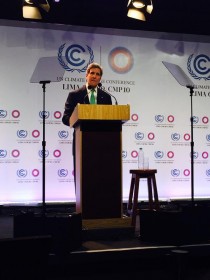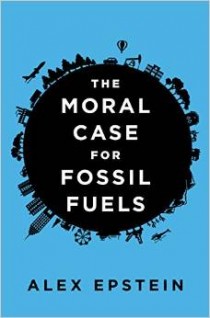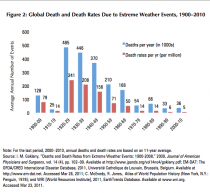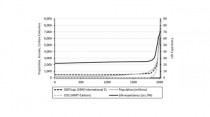Appollo Astronaut rushed off stage at UN Climate Summit to make way for Kerry Photo Op
Joe Bastardi

Despite being given a slot of 30 minutes for their talk, they were told they had to “wrap up” after 18 minutes into their presentation to make room for Secretary Kerry who is attending the UN talks to promote a new UN climate treaty. Kerry said in October that ”If [skeptics are] wrong: catastrophe...Life as you know it on Earth ends.” Kerry has also declared that climate change “may be, in fact, the most serious challenge we face on the planet.”
I would have be more confident in the good senators never let a good crisis go to waste idea if he got something beyond a D in Rocks for Jocks
Its ironic isn’t it. Guys like Walt Cunningham were heroes to little guys like me but when I was a kid, so was a president that was a senator from Massachusetts. There were 4 things I loved as a kid ( outside of family).. weather, politics ( when growing up, would watch the Sunday talk shows, and wanted to be president) History and Space. As such. Mercury, Gemini, Apollo were all big deals to me. The astronauts were heroes, along with a certain senator from Massachusetts that became president when I was just 5. Nasa represented man reaching beyond his grasp. Like him or not, John Kennedy not only challenging his countrymen, but letting the world know who the torch was passed too, is something that even today is something sorely missed by people like me
Think about what Kennedy and NASA meant. When the Russians launched the space race, NO way was the US going to let a system that destroyed the hopes of the individual out perform the nation that had a constitution that stressed the opposite. People thought it was a waste of time and money. But the light of possibility to a free and competitive people meant more than just who got to the moon fastest.
So, here we have one of the heroes from my day, getting cut short in his anti AGW presentation, by a former senator from Massachusetts. The guy getting cut short is still a hero to me. For all of his now listed imperfections, the light of possibility that the former senator, turned president, in1960 represented, is still heroic to me. Men are not Gods, and fall fall short of it. But there is something to striving for something higher even with the demons all of us have that we must confront.
But in 2014 look who gets pushed off stage because of who is coming on. And over what??? Global warming????
Perhaps the problem is that we have people today who cant measure up to the idea of possibilities that we embraced in 1960, so instead need to find something that can make them look heroic, but have no chance to actually be resolved.
The moon is there and we got there. Its always risky to actually commit to a tangible goal, as opposed to one that no one can truly define, and never gets you to confront the true problem, the desire to measure up to things in a way where you actually see where you stand.
The Cunninghams, the Kennedy’s etc of that generation did shoot for things where success and failure could be measured, and we were better off for it
--------
A Commentary by John Stossel
People argue about whether the “consensus” of scientists is that we face disaster because of global warming. Instead of debating whether man’s greenhouse gasses will raise temperatures, we should argue about how we gauge disasters.
If you take most environmentalists and climate scientists at their word, the Earth heated up about 1.4 degrees Fahrenheit over the past century, not much more than it heated up the century before that. Warming may increase, but no one can be certain of that.
Let’s agree for the sake of argument that this recent warming was partly caused by humanity. Let’s also agree that there are some negative effects, including more frequent coastal flooding or longer droughts.
If we agree that those are costs, shouldn’t we also look at the benefits? Much of modern civilization owes its existence to our use of the fossil fuels that produce the greenhouse gasses.
I don’t see that civilization as misfortune. I wish climate alarmists would weigh its accomplishments against the relatively small downsides of climate change. One of industry’s biggest accomplishments is creating a world where far fewer of us are likely to die because of weather.
Alex Epstein’s book ”The Moral Case for Fossil Fuels” documents the rapidly shrinking number of human beings killed by storms, floods and other climate events thanks largely to ever-growing industry, fueled mainly by oil, natural gas and coal.

On my show this week, he argues that if we compare conditions a century ago to conditions last year, we shouldn’t obsess about how much carbon dioxide is in the air—or whether earth is warming—we should look at how much safer life became. Icecap Note: See this report by Indur Goklany.
See how it increased life expectancy:
In 2013, “Climate-related deaths were at a record low—in supposedly the worst climate in history—under 30,000,” says Epstein. In 1931, bad weather killed 3 million people.
You can argue that we get some things wrong as a civilization, but thanks to our use of fossil fuels, we get something very right.
Epstein points out that humanity owes its current ability to survive harsh winters, arid deserts and other naturally dangerous environments to the same fuels that activists now condemn: “We have the luxury of being able to absorb a certain amount of climate-related damage so we can live in all of these cool places.”
His argument is unusual because environmentalists spread the idea that, without human interference, the planet is perfect.
But by what standard?
“If you went to someone 300 years ago and asked them, do you have a perfect climate?” they would think you were crazy, says Epstein. “They were terrified of climate, because climate doesn’t give you the resources that you need. It doesn’t give you water when you need it. It doesn’t give you the temperature when you need it.”
It was once common to say that humans change their environment. That shouldn’t offend people today, says Epstein. We should be thrilled that humans “create technology to master climate… That’s why so few people today die from climate.”
Epstein correctly says that instead of talking about “climate change”—of which there will always be some, with or without human influence—we should focus on “climate catastrophe,” weather that actually kills people. Those catastrophes, measured in lost lives, are getting rarer.
Most of the changes humans make to our environment are desirable changes that help us live longer and more comfortably. “The dogma that man is ruining the planet rather than improving it is a religion, a source of prestige and a career for too many people.”
If we regard nature as pristine and think it must never be altered, we will have big problems. We will die young and lead miserable, difficult lives.
I think of industry as something that is mostly very good for us, with a few minor side effects that aren’t. Fossil fuels are a little like antibiotics, says Epstein. It’s good to draw attention to minor side effects, but it would be crazy to abandon all treatment because of them.
Fossil fuels are no catastrophe. They contribute to health and a better life.
John Stossel is host of “Stossel” on Fox News and author of “No They Can’t! Why Government Fails, but Individuals Succeed.” For other Creators Syndicate writers and cartoonists, visit www.creators.com.




